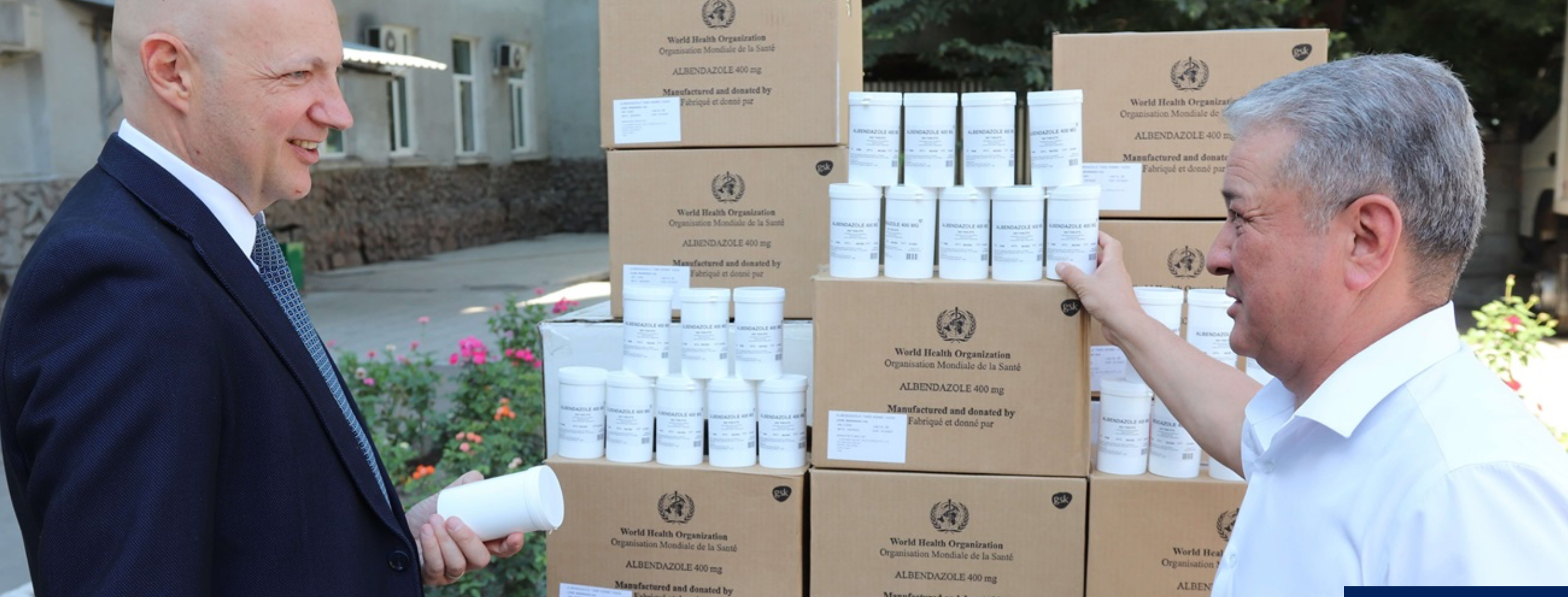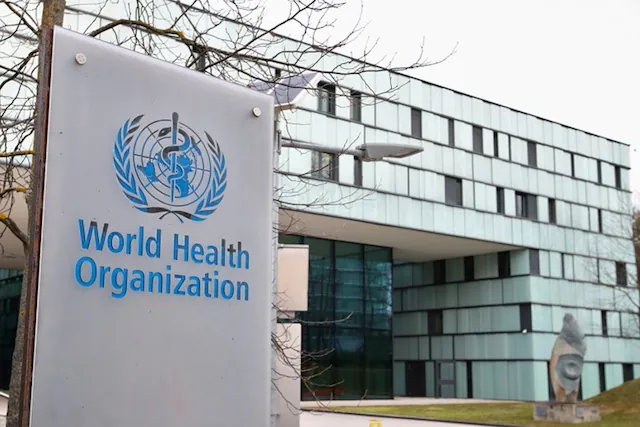The World Health Organization (WHO) in Kyrgyzstan has provided humanitarian assistance in the form of 435,000 albendazole tablets, each with a dosage of 400 mg.
The albendazole tablets, essential for treating patients with cystic and alveolar echinococcosis, have been delivered to the Department of Disease Prevention and State Sanitary and Epidemiological Surveillance (DDPSSES) under the Ministry of Health. The medication will be distributed to healthcare organizations across the country in the coming weeks.

Echinococcosis is a parasitic infection caused by the Echinococcus granulosus worm. The disease is primarily transmitted to humans through contact with domestic dogs and livestock. To combat the spread of this infection, it is vital for dog and livestock owners to regularly deworm their animals. Additionally, maintaining proper personal hygiene, such as regular handwashing, is a key preventive measure.
According to official data from DDPSSES, Kyrgyzstan registers between 800 and 1,500 cases of echinococcosis annually, including up to 200 cases of alveolar echinococcosis. Alarmingly, a significant percentage of those requiring surgical treatment (58% to 65%) are children and young adults. Postoperative recurrences are observed in 32% to 38% of cases, with mortality rates ranging from 2% to 6%.
One of the challenges in effectively treating this disease is the financial burden on patients, who often cannot afford the necessary 400 mg albendazole tablets. This financial barrier has led to incomplete anthelminthic treatment, resulting in complications and relapses.

“Thanks to this shipment, all identified patients will be able to receive the anthelminthic drug albendazole in 400 mg tablets free of charge for the next two years, which will significantly reduce the incidence of complications, relapses, and disease burden in Kyrgyzstan,” said Liviu Vedrasco, WHO Representative to Kyrgyzstan.
Abdykadyr Joroev, Director of DDPSSES, praised the aid, highlighting that it will provide comprehensive access to treatment and help prevent relapses, benefiting both immediate public health and long-term disease control efforts.
“This important humanitarian assistance will allow full access to conservative and anti-relapse therapy, ensuring the continued well-being of our patients. This assistance not only addresses immediate public health concerns but also supports long-term efforts to combat and prevent this disease,” Abdykadyr Joroev voiced.
Follow Daryo's official Instagram and Twitter pages to keep current on world news.
Comments (0)